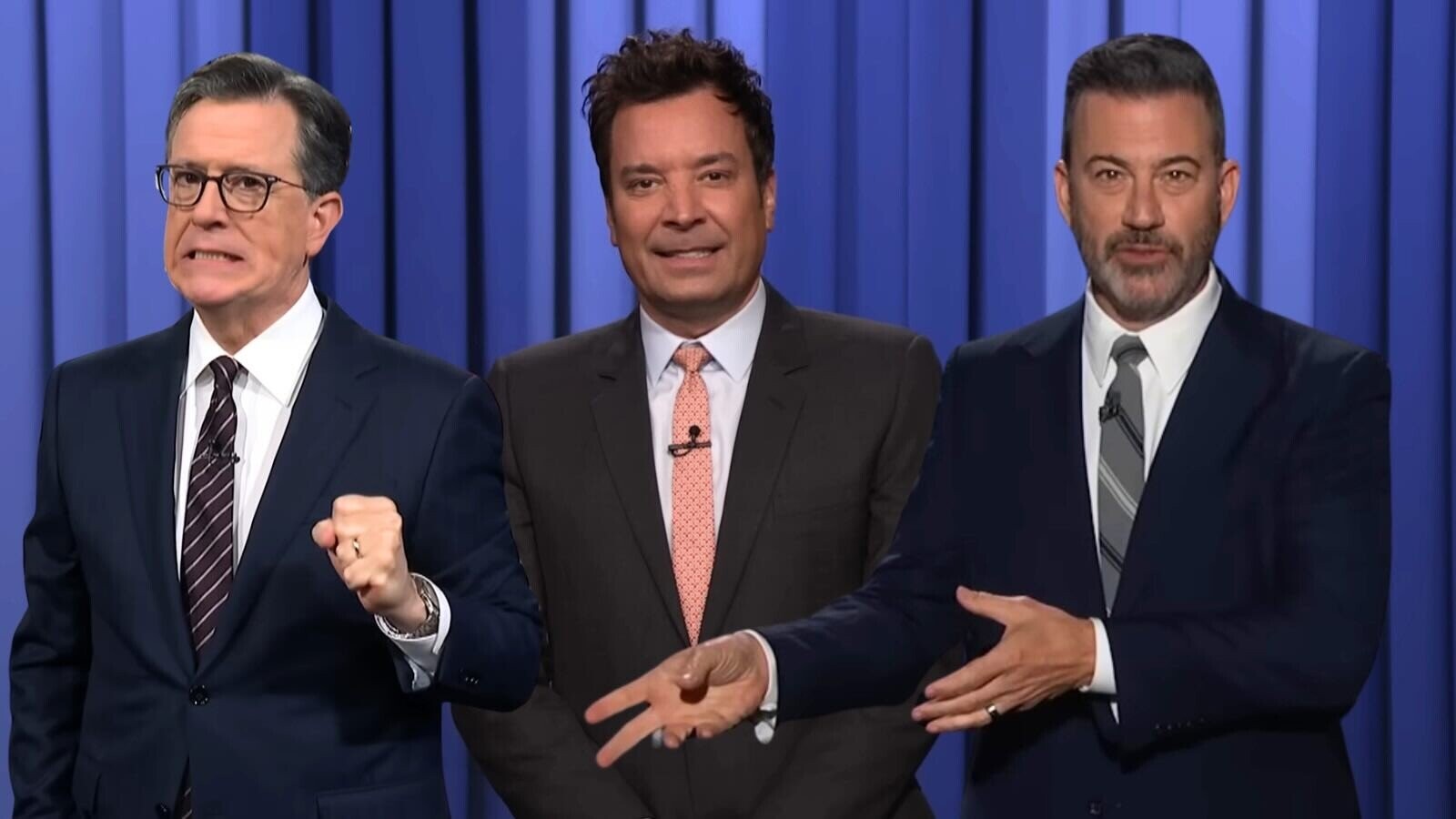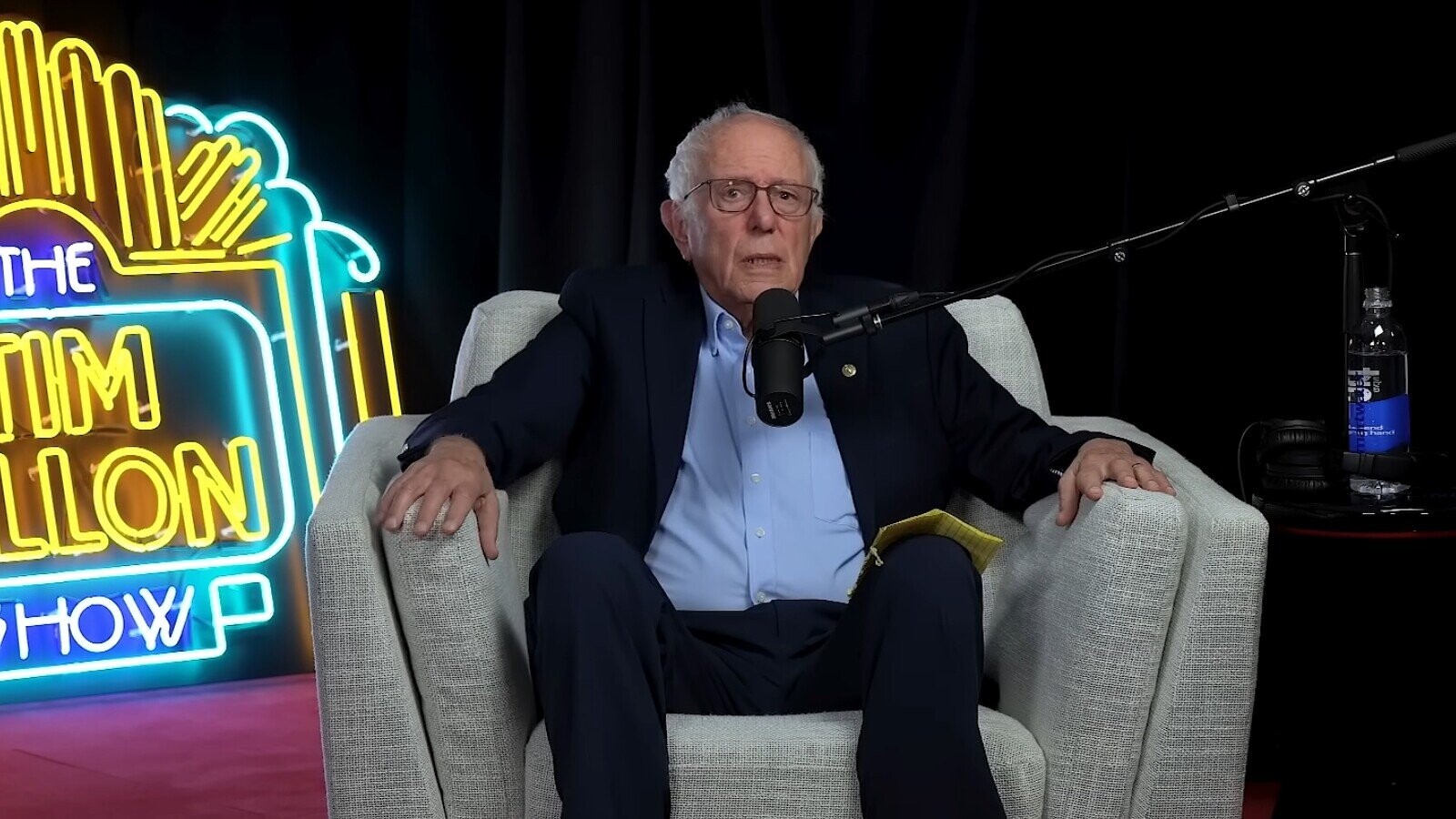
There’s been a lot of hair pulling recently about why late-night programming is struggling. The only one who’s seemed to really crack the code is Gutfeld! That doesn’t really count, though, because it comes on at 10 p.m. and is watched by people who are so fueled by hate they need 24 hours of Fox News programming. Plus, some of that large audience has to be the old people leaving their TV on when they sleep, right?
But, because of the rapid decline in late-night viewership, there are plenty of people who blame the hosts for failing to keep a large audience. Gutfeld’s success and the massive numbers of views on YouTube for Jimmy Fallon, Stephen Colbert, Jimmy Kimmel and Seth Meyers suggests that the problem isn’t the hosts themselves.
In a Substack post shared to the r/LateNightTalkShows, the account ThinkingAndData suggested that the real problem with late night has nothing to do with the white men helming the major network shows.
Don’t Miss
“In the past, late-night was a jack of all trades — comedy routines, sketches, celebrity interviews, music performances — but with the dawn of the internet, it has emerged as a master of none,” the Substack post posits. “This theme has played out twice before, with two major predecessors of late-night: vaudeville and variety shows.”
The article traces how both prior forms of entertainment were killed by new forms of technology. “With vaudeville, it was motion pictures, and with variety shows, it was cable TV. With late-night, it’s playing out over the internet and social media,” the post continues.
This isn’t an entirely new theory, but the response on Reddit shows that it best reflects most late-night fan’s realities. No one is tuning in at 11:30 p.m. to watch Kimmel or Colbert on TV — very few people even pay for cable anymore, especially young people. “I actually watch all the late night on YouTube the following day and I’m 34 years old,” one person on the Reddit post commented. “It’s become a way for me to stay informed without going insane about what’s going on.”
“You NEVER need to watch anything when it ‘airs,’” another person chimed in. “You choose when to watch. And so the communal element and the sense of anticipation is gone from late night and other shows that historically have relied on being fresh with commentary on the day’s or week’s events.”
“‘Did you catch ___ last night?’ has been almost entirely replaced with ‘did you catch that ___ bit on YouTube?’ at this point,” a third Redditor commented.
So, where does this leave late-night programming? YouTube revenue isn’t exactly going to cover the production costs of these massive shows.
The Substack post frames it like this: “The issue with current late-night shows is that they operate on a business model of mass appeal, but today’s attention economy is built on niches. As the economics of late-night become more dire, I expect more of the remaining late-night hosts to either retire, reformat their shows or eventually get kicked out.”
Some on Reddit think it might just be time to scrap this form of entertainment altogether, and invest in whatever comes next. “That 75-year-old format is definitely stale, especially with a middle-of-the-road host,” one person commented. “But yes I agree the main problem is it’s just a weird old from of entertainment from a bygone era.”
If this is what the people active in the r/LateNightTalkShows subreddit are saying, it’s likely an even more grim prognosis from the general public.
Disclaimer : This story is auto aggregated by a computer programme and has not been created or edited by DOWNTHENEWS. Publisher: feeds.feedburner.com








